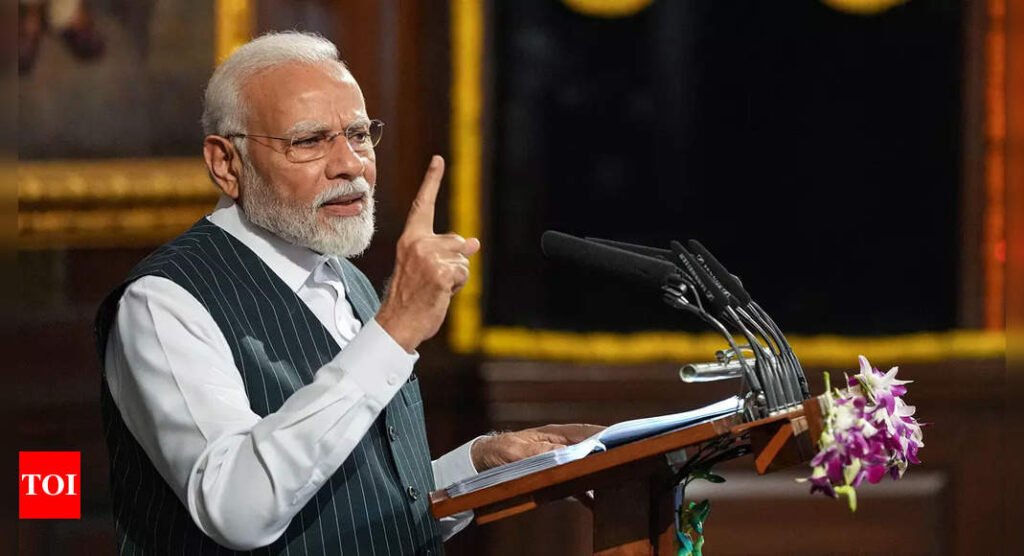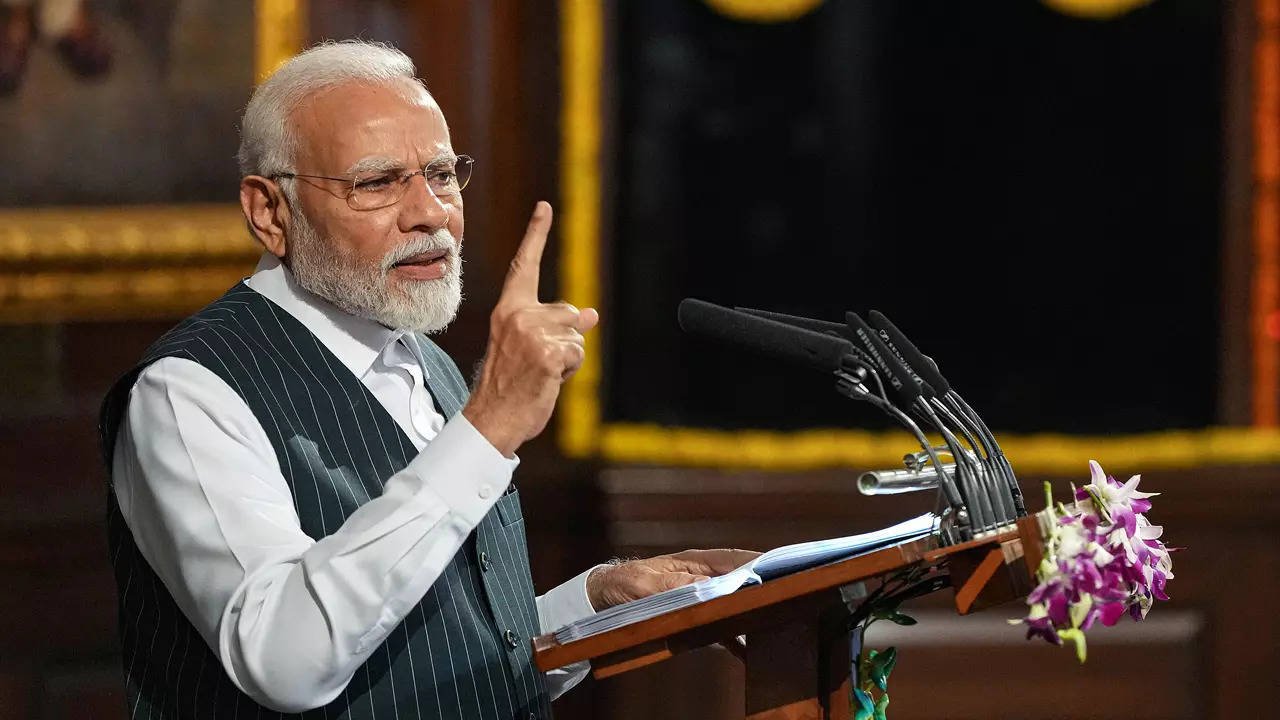[ad_1]
NEW DELHI: In the first big move after shifting to the new Parliment building, the government on Tuesday tabled the women’s reservation bill in the Lok Sabha to provide one-third reservation to women in the lower house of Parliament, state assemblies and the Delhi legislative assembly.
Making the announcement in his first speech in new Parliament, Prime Minister Narendra Modi said that the Union Cabinet has approved the women’s reservation bill, a proposal that has been hanging for decades.
“Discussion on Women’s Reservation Bill happened for a long time. During Atal Bihari Vajpayee’s regime women’s reservation bill was introduced several times but there was not enough majority to pass the bill, and because of this, the dream remained incomplete. Today, God has given me the opportunity to take this forward,” PM Modi said in Lok Sabha.
“The ‘Nari Shakti Vandan Adhiniyam’ will ensure more women become members of Parliament, assemblies,” PM Modi said in his first speech in the new Lok Sabha chamber.
The Prime Minister said that the world is witnessing contribution made by Indian women in different aspects of life from sports to startups. “The world has recognised the women-led development process in country,” he said.
Here’s what you need to know about the bill:
* The ‘Nari Shakti Vandan Adhiniyam’ is the first bill to be tabled in the new Parliament building. Introducing the bill, law minister Arjun Ram Meghwal said it aims to provide 33 per cent reservation to women in Parliament and assemblies.
* Notably, the women’s reservation bill can only come into effect after the delimitation exercise is undertaken in India.
* This means that the bill cannot be implemented before the 2024 Lok Sabha elections.
* As per existing law, the next delimitation exercise can only be conducted after the first census to be taken post 2026. This effectively means that the bill cannot become a law until at least 2027.
* Some reports have suggested that the women’s quota may get implemented by the 2029 Lok Sabha elections.
* Under the women’s quota, one-third of the seats shall be reserved for women belonging to the Scheduled Castes and Scheduled Tribes.
* Once it becomes an Act, the law will be in force for 15 years. Its term can be extended.
* The number of women members in Lok Sabha will rise to 181 from 82 currently once the women’s reservation bill comes into force, law minister Arjun Ram Meghwal said.
* Seats reserved for women will be rotated after each delimitation exercise.
* The bill was first passed by Rajya Sabha in 2010. However, it was not taken up in Lok Sabha and lapsed in the lower house.
(With inputs from agencies)
Making the announcement in his first speech in new Parliament, Prime Minister Narendra Modi said that the Union Cabinet has approved the women’s reservation bill, a proposal that has been hanging for decades.
“Discussion on Women’s Reservation Bill happened for a long time. During Atal Bihari Vajpayee’s regime women’s reservation bill was introduced several times but there was not enough majority to pass the bill, and because of this, the dream remained incomplete. Today, God has given me the opportunity to take this forward,” PM Modi said in Lok Sabha.
“The ‘Nari Shakti Vandan Adhiniyam’ will ensure more women become members of Parliament, assemblies,” PM Modi said in his first speech in the new Lok Sabha chamber.
The Prime Minister said that the world is witnessing contribution made by Indian women in different aspects of life from sports to startups. “The world has recognised the women-led development process in country,” he said.
Here’s what you need to know about the bill:
* The ‘Nari Shakti Vandan Adhiniyam’ is the first bill to be tabled in the new Parliament building. Introducing the bill, law minister Arjun Ram Meghwal said it aims to provide 33 per cent reservation to women in Parliament and assemblies.
* Notably, the women’s reservation bill can only come into effect after the delimitation exercise is undertaken in India.
* This means that the bill cannot be implemented before the 2024 Lok Sabha elections.
* As per existing law, the next delimitation exercise can only be conducted after the first census to be taken post 2026. This effectively means that the bill cannot become a law until at least 2027.
* Some reports have suggested that the women’s quota may get implemented by the 2029 Lok Sabha elections.
* Under the women’s quota, one-third of the seats shall be reserved for women belonging to the Scheduled Castes and Scheduled Tribes.
* Once it becomes an Act, the law will be in force for 15 years. Its term can be extended.
* The number of women members in Lok Sabha will rise to 181 from 82 currently once the women’s reservation bill comes into force, law minister Arjun Ram Meghwal said.
* Seats reserved for women will be rotated after each delimitation exercise.
* The bill was first passed by Rajya Sabha in 2010. However, it was not taken up in Lok Sabha and lapsed in the lower house.
(With inputs from agencies)
[ad_2]
Source link











More Stories
We can’t wait to face India in the final: Pat Cummins | Cricket News
Railways plans 3,000 additional trains in next 4-5 years to minimise number of waitlisted tickets | India News
Faridabad: Man dies after ‘falling from hotel room window’ while partying with friends